Jiali Zhen Xing Temple God Statues and Temple Art
Zhen Xing Temple in Tainan’s Jiali District, originally called Qing Shui Temple, was founded in 1723 and dedicated to Lord Qingshui. Early settlers to Taiwan brought with them ‘Lord Qingshui,’ — a deified monk — from their homeland, Anxi, in China’s Fujian Province. The idols were believed to have protected them in their dangerous crossing to Taiwan and were subsequently consecrated in a makeshift temple and worshiped by the people of the area.
Zhen Xing Temple incorporates elements of traditional wood carvings, stone carvings, cut porcelain inlays, Koji Pottery arts and many symbolic and accomplished architectural components in its structure creating a temple with great cultural significance and artistic value. Note the beautiful ‘Hanfan’ statues straining to hold up the temple roof crafted by Koji Master Ye Wang.
In 2007, the Zhen Xing Temple regulatory committee passed a resolution to mold new god statues of their temple deities. The Tainan Municipal Administration of Cultural Heritage brought the old clay statues to Tainan National Museum of the Arts and Graduate Institute of Conservation of Cultural Relics and Museology for temporary storage and restoration. In 2012 restoration work of the trio of statues began and they were recently moved to Soulangh Cultural Park’s Yizhen Exhibition 臺南藝陣館 (newly opened in September) to display.
These somewhat garish statues replaced the elegant wood and clay statues. I visited the temple and asked for information about the new deities: who made them, where were they made, what they were made from; nobody knew. They were pleased that I was interested in their temple and generously gave me a 224 page hardback book that details the amazing artworks in their temple but there was no information on the new deities there either.
These statues were consecrated in 1862 when the temple was renovated after being badly damaged by an earthquake, and they saw the temple, now renamed Zhen Xing Temple, flourish and prosper for several years — until they were beheaded by the Japanese.
The Japanese era on Taiwan (1895-1945) saw their ‘religion reorganization movement’ curtailing popular religions — one policy was to behead their religious statues — while promoting Buddhist religions. Because Zhen Xing Temple became Japan’s Linji Sect contact monastery, the temple’s beheaded statues of Lord Qing Shui and General Leifu were protected from complete destruction. The temple later retained a master carpenter to carve new wooden heads for the clay statues and Lord Qing Shui and General Leifu became precious and rare mud statues with wooden heads.
The idols manifest the unique socio-cultural styles, arts, crafts and techniques of their times. These three statues — Lord Qing Shui, General Leifu and Li Fu Qian Shui — are a unique testimony to Zhen Xing Temple and Jiali’s heritage.
Once religious statues have been un-consecrated they are often unceremoniously destroyed or dumped. Kudos to the Tainan Culture Bureau for receiving and preserving these historically valuable pieces along with other cultural treasures at the Soulangh Cultural Park’s Yizhen Exhibit 臺南藝陣館.
Also in 1862, the now famous Master Ye Wang was commissioned to decorate the temple with exquisite Koji pottery art; turning the temple into a cultural treasure.
Outdoors and unprotected from the elements, Eight Immortals Cross the Sea, is one of Master Ye Wang’s later works. The exquisite expressions and postures are well worth admiration.
This Koji Pottery art of quite a different style was also one of Ye Wang’s later works. Called 博古 Bo Gu, the work is built into a square in the wall and each object as well as the objects altogether have auspicious meaning.
Shown here is Wang Bao Yuan’s Porcelain Inlay Art ‘Fan ?? Xi Hsi Shi’ (Sorry, can’t read the characters ;-)) depicting a story from the Spring and Autumn Period of China.
Incidentally, there is an exhibit about Wang at the Soulangh Cultural Park which runs through to November 30th. 第三期王保原剪黏創作傳習工作坊」師生成果展
Zhen Xing Temple’s San Chuan Doors (traditional style with a central doorway and two smaller side entrances) are original 1967 works by the famous Tainan area door god painter Cai Cao Ru, and restored in 2001. The two doors that make the dragon (left) doors are literary gods holding an auspicious items that symbolize good fortune and promotion. Jinlu晉祿 holds a deer as ‘good fortune’ sounds the same as ‘deer’. Jiaguan (加冠) holds a crown, which sounds the same as ‘promotion’ in Chinese.
Much of the temple’s fine carpentry was the work of Master carpenter Wei Li-zuo who was hired by Zhen Xing Temple for the 1965 renovations.
Love the translation!
Jiali Zhen Xing Temple is well worth a visit to admire the wood carvings, stone carvings, cut porcelain inlays, Koji Pottery arts and architectural elements but do visit the nearby Soulangh Cultural Park to see the original wood/clay statues at the Yizhen exhibit.


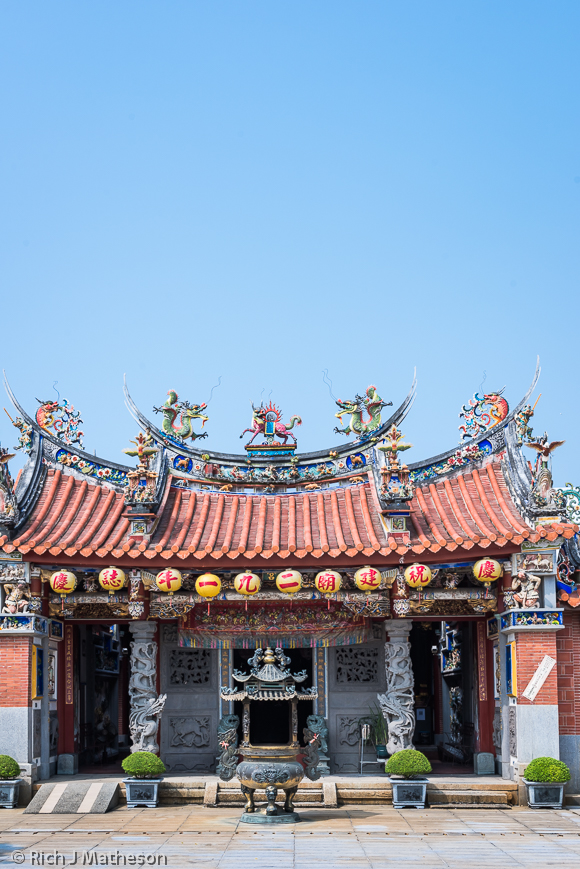
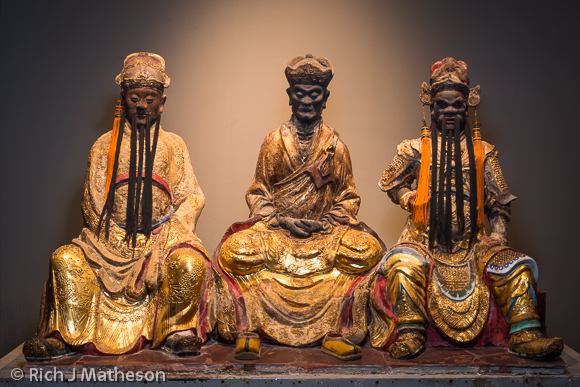
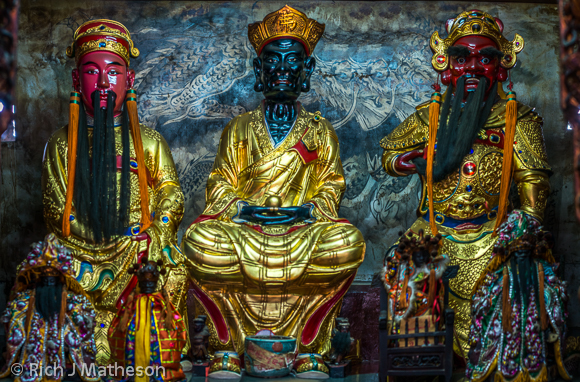

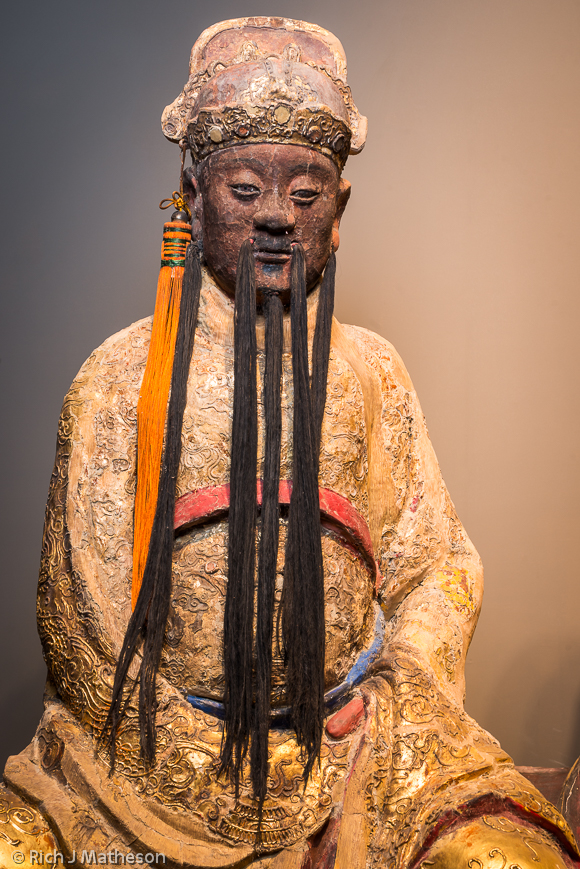
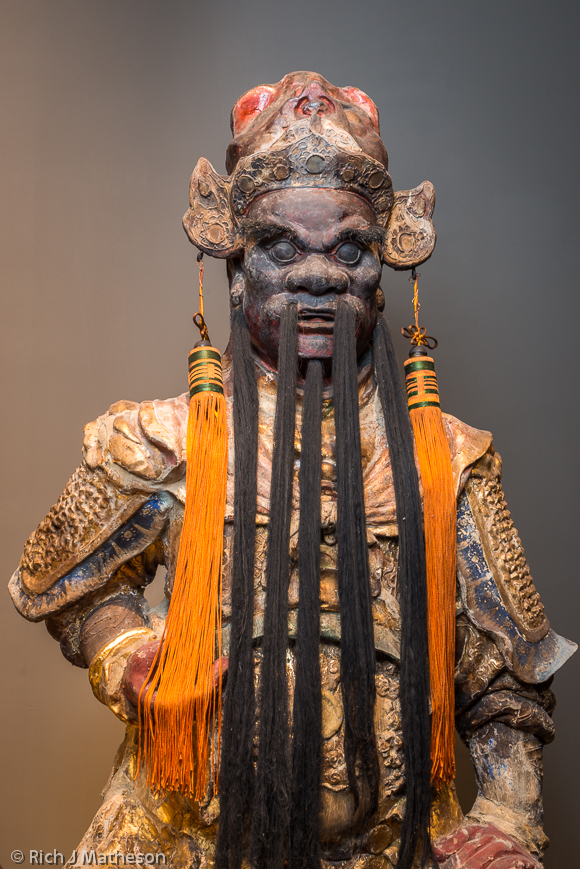
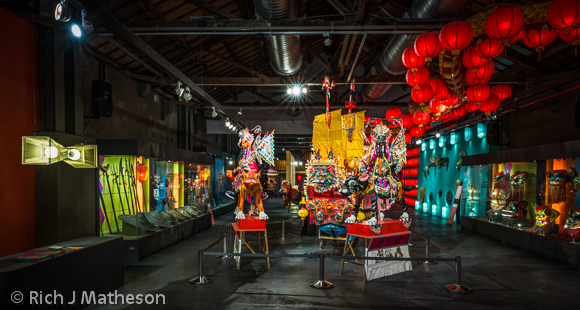
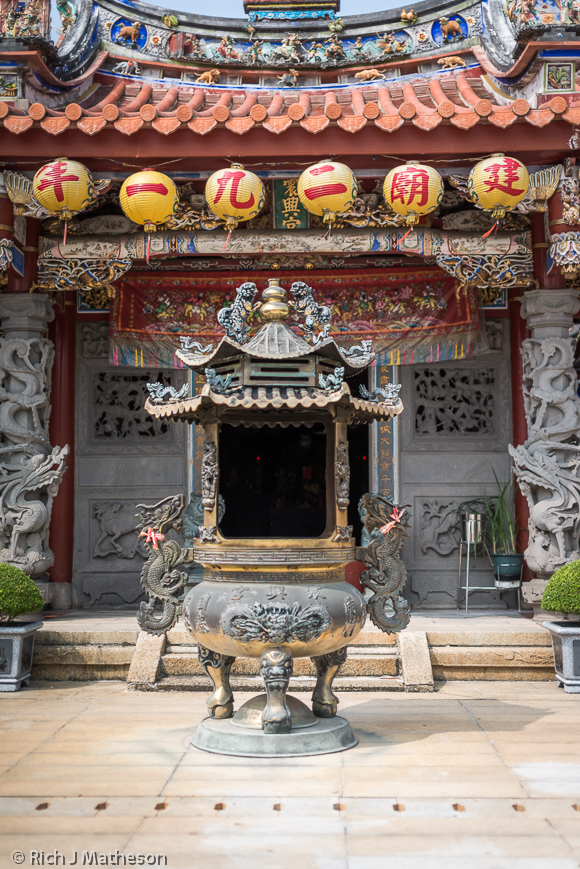
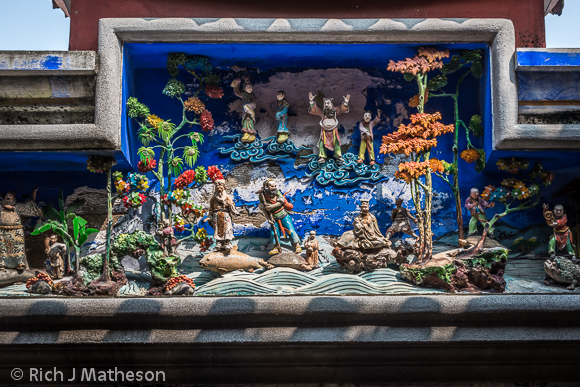
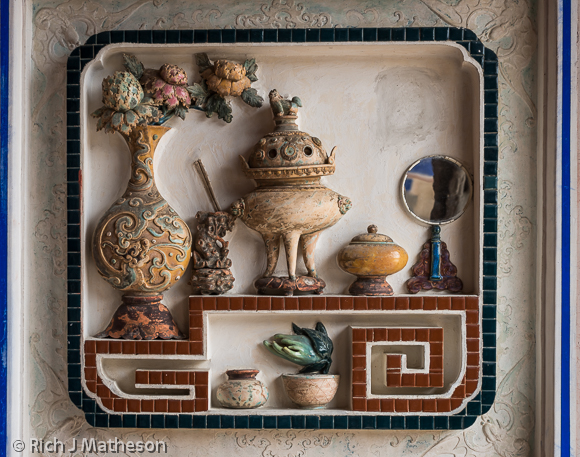
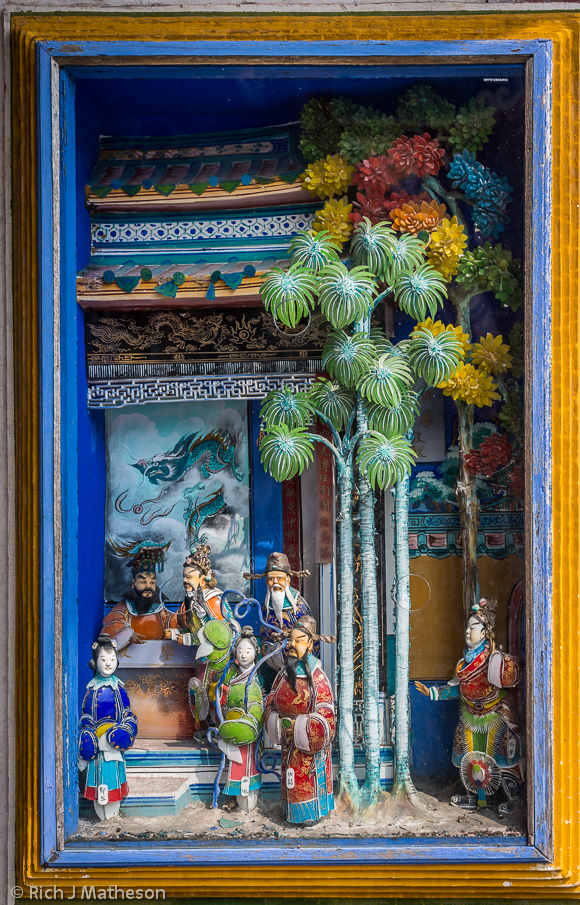
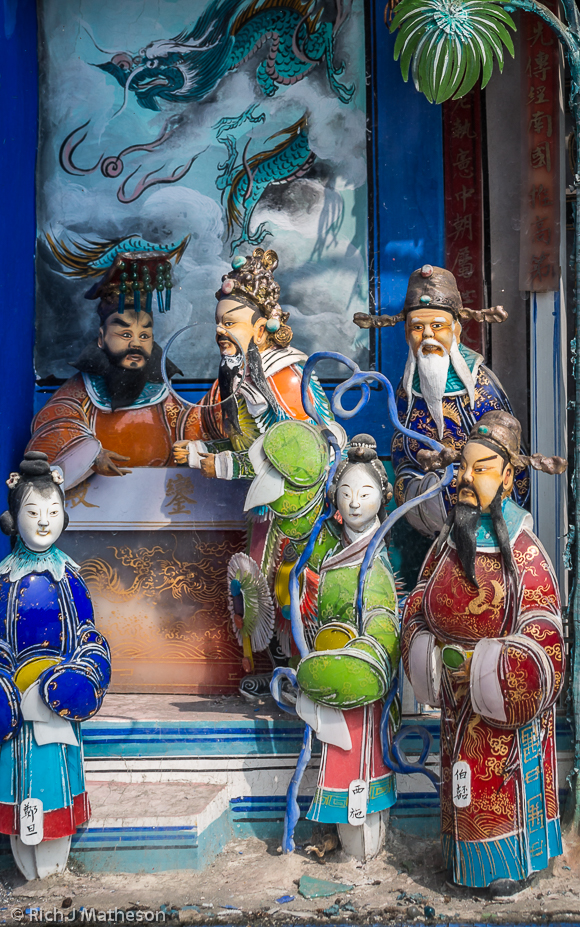
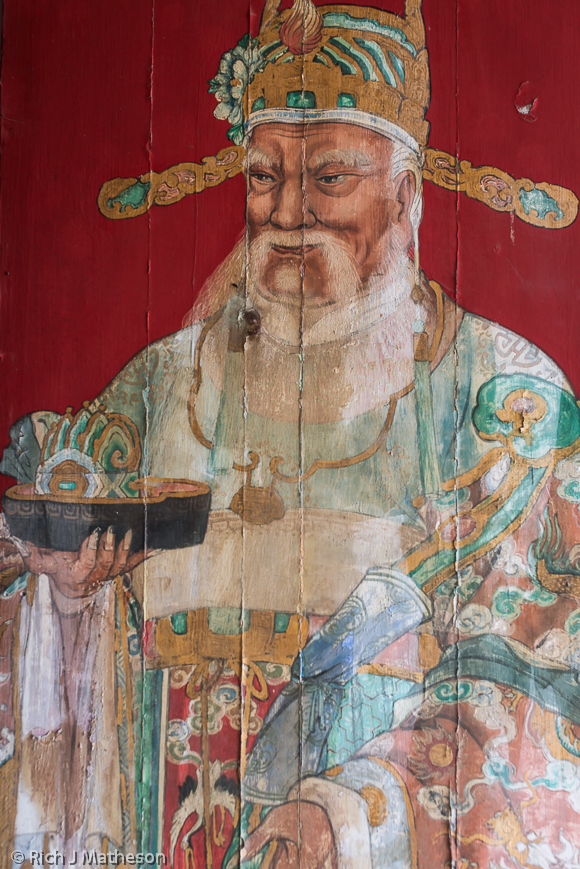
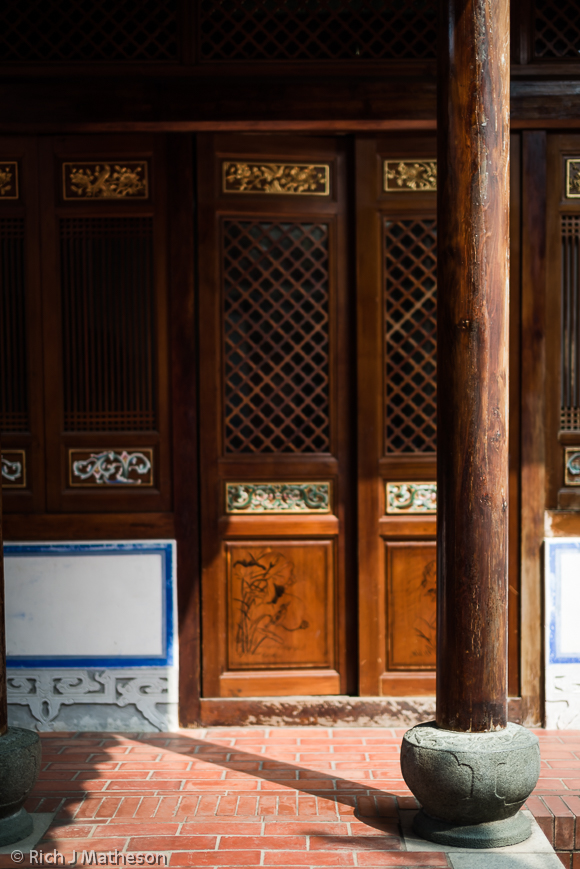
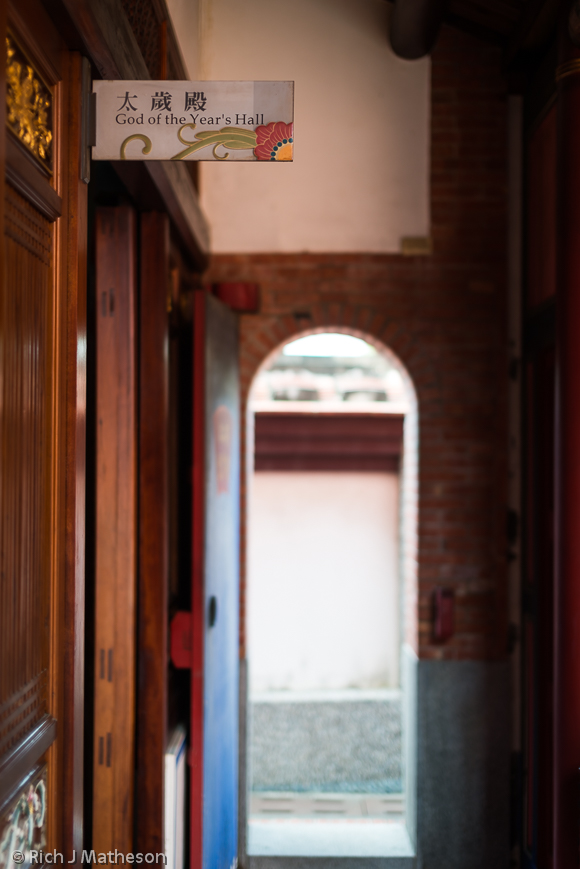
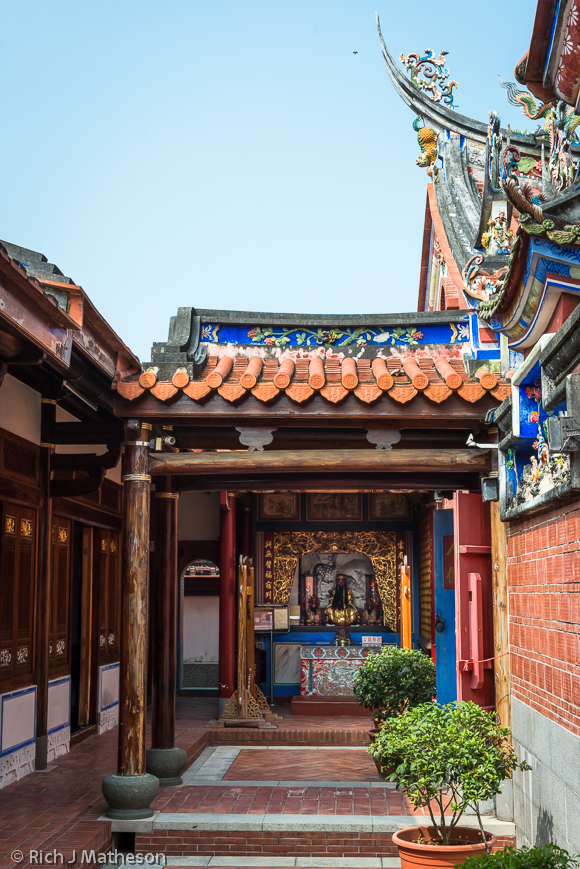
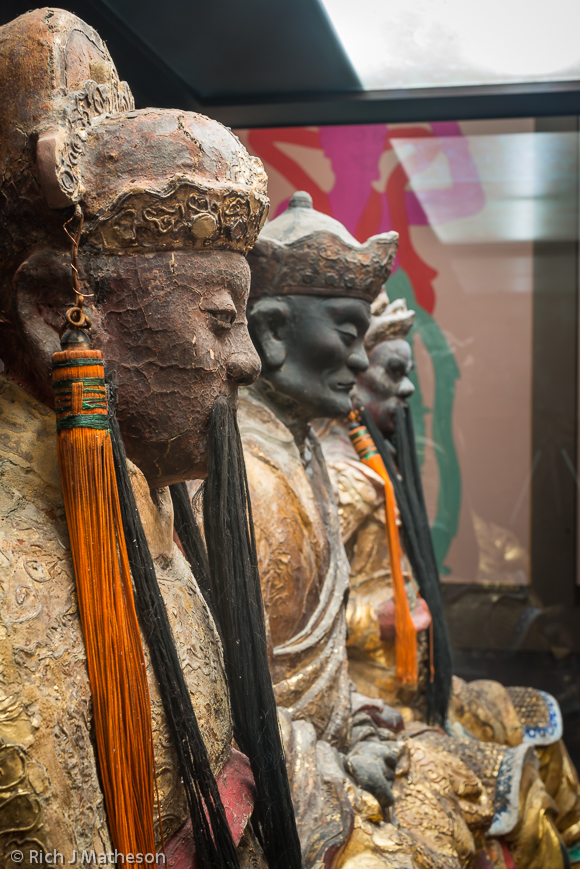




Jiali Zhen Xing Temple God Statues and Temple Art in Tainan
photos by @richjmatheson
http://t.co/e1sghd0lfh